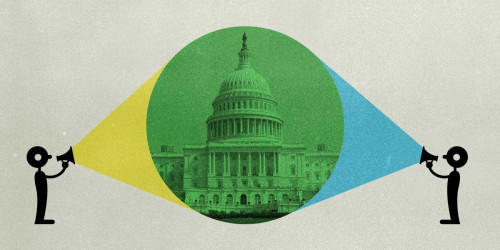A Pennsylvania publicly-traded company has become the latest corporate entity to use the legal system in an attempt to out an anonymous online critic, and EFF is defending the critic with the help of the First Amendment as well as an important new California statute. USA Technologies, based in Malvern, Pennsylvania, recently filed a federal lawsuit against two Yahoo! message board posters who roundly criticized what they claim is the consistently poor performance of USA Technologies' management. The criticism highlighted plummeting stock prices of the company as well as the high compensation rates for management of the company that has been consistently unprofitable.
In its complaint filed in August in U.S. District Court for the Eastern District of Pennsylvania, USA Technologies curiously alleges without any evidence that the anonymous online statements must have somehow been part of a "scheme" on behalf of the anonymous posters to "enrich themselves through undisclosed manipulative trading tactics" in violation of the Securities Exchange Act. The company also alleges that pointed though legal criticism of the company and its management is defamatory. Following the filing of the lawsuit, USA Technologies issued a subpoena to Yahoo! demanding that the identity of its critics be disclosed.
Using the court's subpoena power to unmask anonymous Internet critics is unfortunately an all-too-common occurrence. Subpoenas are cheap to issue, and targeted speakers are usually scared into silence or simply don't have the legal resources to fight. Even when the target stands up for his or her First Amendment rights and tries to fight the subpoena in court, the issuing party -- seeing that the fishing expedition will be more trouble than it is worth -- usually drops the matter altogether. In recent years, EFF has successfully defended several anonymous online speakers against these kinds of baseless threats. In the few instances in which such litigants have persisted to a court decision, the public reaction has been none too kind.
Fortunately, two things stand in the speakers' favor in the immediate case. First, as EFF explained in its recent motion to quash, the First Amendment protects the right of Internet users to speak anonymously. While a company may not appreciate the glare of a critical spotlight, that fact does not give it the right to try to intimidate critics with the use of invasive discovery. Second, a newly-amended statute -- California code of civil procedure § 1987.2 (passage of which EFF strongly supported) -- awards mandatory attorney's fees to an anonymous speaker if a court grants his or her motion to quash an identity subpoena issued in support of an out-of-state suit and "if the underlying action arises from the moving party's exercise of free speech rights on the Internet and the respondent has failed to make a prima facie showing of a cause of action." Translation: out-of-state litigants who try to use the California legal system to unmask anonymous speakers citing dubious legal theories may have to pay their target's attorney's fees for their trouble.
Like so many soft-skinned targets of First Amendment-protected speech before it, USA Technologies has turned to litigation in an attempt to intimidate its critics instead of developing a thicker skin or even taking the criticism to heart. USA Technologies will soon have an opportunity to explain to the court (an opposition to the motion to quash is due December 4, 2009) and its stockholders (a shareholder meeting is scheduled for December 15, 2009) why this failed tactic is worth the time and money, let alone the infringement on First Amendment rights.
Case materials for USA Technologies v. Doe can be found at EFF's case page here.









